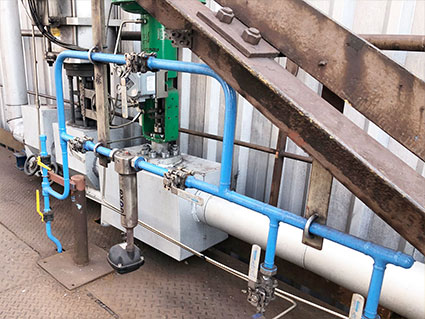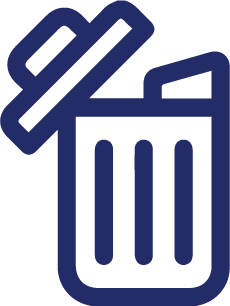Mining and Metal Manufacturing Case Study: ArcelorMittal
Expel is the world’s first energy efficient compressed air filter
About the customer

Project Background
The central fan unit in the factory is involved in recovering iron and steel gases from the manufacturing process in the form of steam, electricity and compressed air. However, because of the extreme length of some of the pipes used – as well as their poor condition – there was always an excess of water, dust and rust being produced. The company needed an effective air filter for compressed air lines capable of removing all of these contaminates to 1 micron.

Why did ArcelorMittal choose Expel?
EXPEL has proved invaluable in protecting such equipment at the Fos-sur-Mer power plant as pneumatic control valve actuators which convert energy (typically in the form of compressed air) into mechanical motion. Similarly, EXPEL protects pneumatic cylinders in the factory which also use the power of compressed gas to produce linear motion.
In addition to offering superior equipment protection, Expel has drastically reduced the environmental impact of the site:
- Unlike traditional filters, Expel does not require any replacement filter elements. This eradicates the wastage generated by standard filters and eliminates the need for maintenance companies to come and service these filters, therefore reducing carbon emissions.
- Expel has an extremely low pressure drop (max 0.1 bar) which remains consistent. This is a drastic contrast to traditional filters the site was previously using, which become more and more energy draining as they become saturated.
- Traditional filters are only ever 60-80% efficient and their performance deteriorates with use. This means that pneumatic equipment is protected as well as it should be. Expel overs a consistent performance of 99.999%. This will prevent equipment and machinery turnover as much as possible.
Expel is the perfect example of how a small change can have a great impact! To date, 60 Expel units have been installed at ArcelorMittal.

Expel is more energy efficient than all other solutions to the problem of liquids and solid particulates in compressed air lines.
THE RESULTS

Reduced Wastage

Reduced Maintenance

Improved Energy Efficiency

Reduced Costs
Improve efficiency by installing
